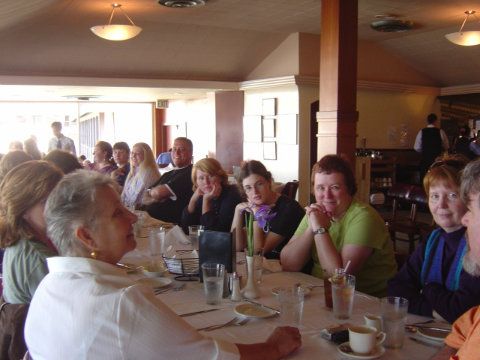tinwë wrote:I think this is also a uniquely Christian viewpoint though, the idea that there is nothing more important than the redemption of lost souls. <snip> This doesn’t make it right for Gollum’s redemption to be more important than Frodo’s life, but it does, I think, help to explain some of Tolkien’s thoughts on the matter.
Yes, thank you, tinwë. You put it perfectly.
This is one question on which I believe Tolkien has re-thought himself, guided by his religious sensibilities.
Faramond, I am sorry for any earlier confusion ... I hope it didn't sound as if I was hammering away in disagreement with you, because I did actually think that I was agreeing with you ... but maybe I didn't understand completely what you were getting at.
I sort of seized on two of your ideas - the idea that 'truth' is crucial to redemption, and the idea that redemption takes time - and built my opinion around them. It seems to me that both those ideas are quite right, whether that would be Tolkien's view of the matter or not.
Also, what an excellent scenario for Sauron's rule of Middle Earth!
I think Sauron would enjoy seeing his minions fight for power in a controlled way. It would be like his version of March Madness.
Yes, a craving for discord ... and seeking a new body, wanting to be able to satisfy mortal appetites without paying for it with mortality ...
And eventually, Sauron would have tried invasion of the West. And failed, of course, but he has not the humility to know this.
Yes, quite right. I recall over on TORC in one of the many threads where we discussed the power of the Ring, a couple posters said that the Ring was the power to usurp God. For Sauron it is very much about that, I think.
vison wrote:Even the undead have to fill their days.
This is the opposite/same as the Elves.
That's very perceptive to see them as parallel, vison. I do think that that potential emptiness is much of what the book is about: immortality would deprive us of as much as it would bestow.
Sass wrote:Eh, the question raised is valid enough although I suspect it's likely Tolkien, ever disdainful of the contemporary psychological novel, never bothered to speculate on the ramifications of 'what if' the other side is victorious?
<snip>
Wasn't this a criticism often leveled against the book when it was first published? I seem to recall reading complaints about the depiction of one-dimensional evil ...
Tolkien does stand in a curious relationship to the rest of 20th ce literature. He has written (imo) a distinctly pre-WWII book that was published post-war, and for that reason stands in sharp contrast to a profound post-war shift that took place in literature.
I did not notice this shift until my children were in middle school and being assigned 20th ce novels for their English classes. Then, wanting to read all the books they were assigned because I was not particularly pleased with their English teachers, I viewed this panorama in a single sweep from Edwardian to Cold War. The change in perspective from pre-war to post-war hit me between the eyes.
Apologies for repeatedly saying that I'll come back later and talk about this more when I have time to think, but ... I now have 5.5 days of term break in which to clean my house for the first time since September!!



